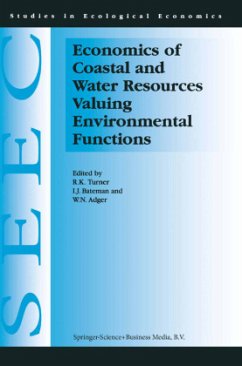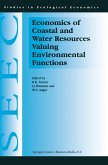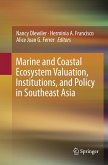Most of the chapters in this volume are authored by staff or associates of the Centre for Social and Economic Research on the Global Environment (CSERGE). CSERGE is a research centre sponsored by the UK Economic and Social Research Council (ESRC), which specialises in interdisciplinary work focussed on environmental management issues. Weare grateful for the long term support that we have received from the ESRC. We would also like to acknowledge the efforts of Ann Dixon and SHin Pearce in the preparation of this volume. vii INTRODUCTION CHAPTER 1. ECOLOGICAL ECONOMICS AND COASTAL ZONE ECOSYSTEMS' VALUES: AN OVERVIEW. Turner, R. K. , Bateman, I. J. and Adger, W. N. 1. 1 Coastal zone pressure and sustainable management challenges Given the continued intensification of the process of globalisation - involving population growth, population density changes via urbanisation, industrial development, increased trade and capital flows, liberalisation of transnational corporation activity and lifestyle and attitudinal changes - coastal zones and their hydrologically linked catchment areas have come under heavy environmental pressure. The scale and extent of socio-economic activities have profound implications for the now coevolving natural and human systems and their complex interrelationships (Turner, Perrings and Folke, 1997). The consequences of this process of change manifest themselves across a range of spatial and temporal scales. Indeed the juxtaposition of different spatial, functional and temporal scales that is inherent in the catchment-coastal ecosystems-seas/oceans continuum poses particularly difficult challenges for both science and resource management/governance.








